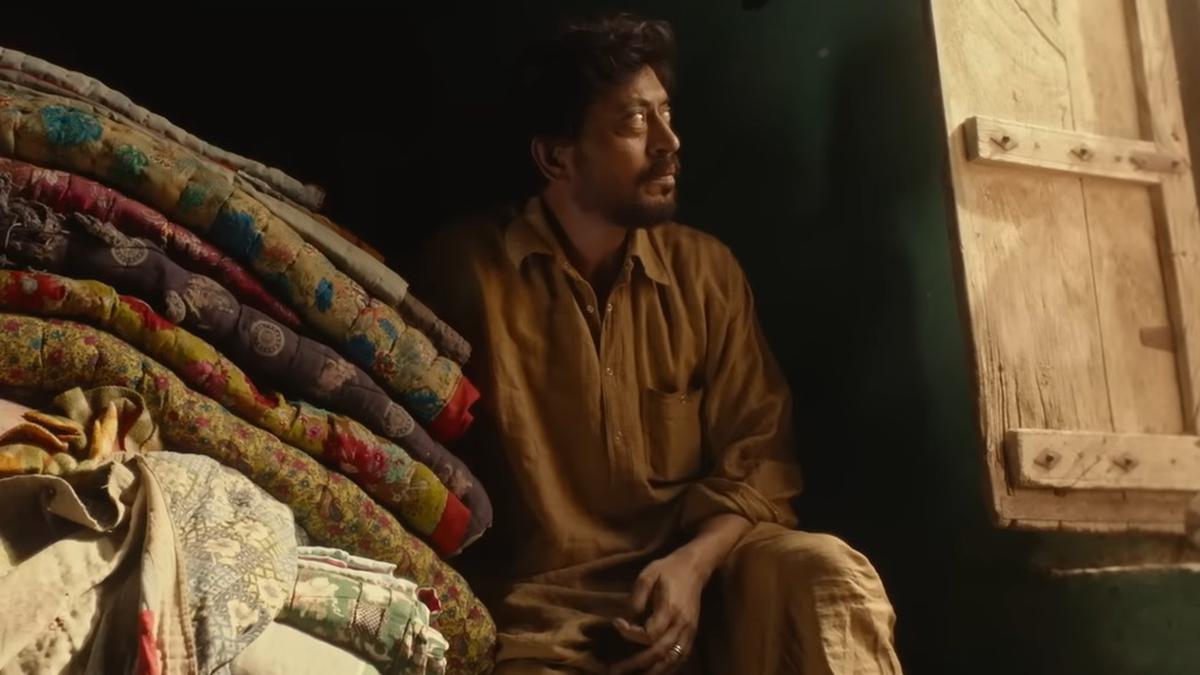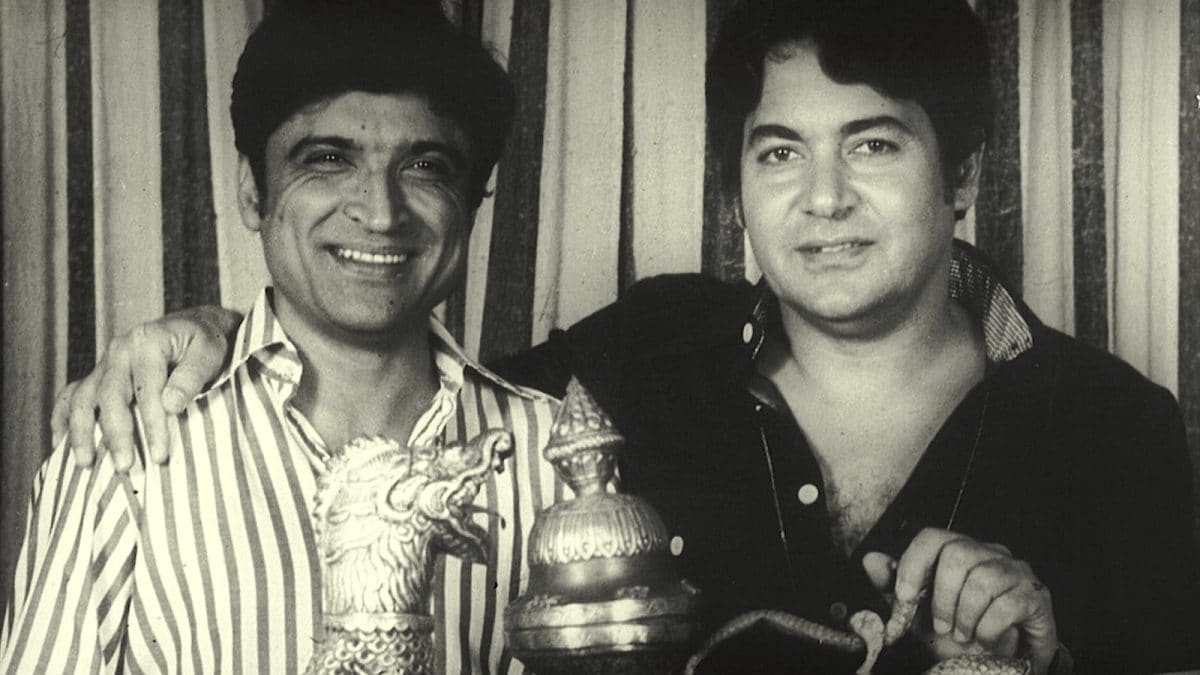- April 28, 2023
‘The Song of Scorpions’ movie review: Irrfan Khan bids adieu in a bewitching film

Irrfan Khan in a still from ‘The Song of Scorpions’
Almost three years since he passed, Irrfan Khan continues to deliver at a steady clip. Preternaturally talented in life, he remains coolly prolific in death. After a couple of online premieres, we get his first posthumous theatrical release in India, The Song of Scorpions. Anup Singh’s film isn’t particularly cathartic. Unlike the director’s Qissa: The Tale of A Lonely Ghost, it draws a satisfactory performance out of Irrfan, not a definitive one. Having said that, there is one way in which Scorpions might be special. Irrfan was an actor of gentle surfaces belying unexpected depths; the same can be said of this film.
There is a fleeting reference to scorpions in Qissa (which was released in India in 2015 and can be streamed on Epic On). Kanwar, a girl raised as a boy by her oppressive yet doting father (Irrfan), laments her mounting dysmorphia, saying that whenever she puts on women’s clothes, her body feels like it’s “crawling with scorpions”. Singh revisits the predatory motif in his latest, which is set amid the dunes and shrubbery of the Thar desert. It also comes attached, appropriately enough, with a sting in the tail.
The Song of Scorpions (Rajasthani, Hindi)
Director: Anup Singh
Cast: Irrfan Khan, Golshifteh Farahani, Waheeda Rehman, Shashank Arora
Run-time: 119 minutes
Storyline: A camel trader falls in love with a singing healer in the Thar desert, with ruinous consequences
A scorpion-stricken man is brought to a camp of tribal healers outside Jaisalmer. Nooran ( About Elly,Paterson’s Golshifteh Farahani), a young prodigy, takes the victim’s pulse, closes her eyes, and launches into a low wail, her scattered notes gradually building and coalescing into a soothing chant. A crowd looks on expectedly; the song is believed to stem the flow of poison and restore its bearer to life. The night draws on but, magically, the man is saved.
Among the onlookers was Aadam (Irrfan), a widowed camel trader. Later, he approaches Nooran and requests her hand in marriage. “Nikah, meri jutti (marriage, my foot),” she retorts, playfully turning him down while accepting payment for her healing services. The film takes a dark turn from here. Nooran is drawn out under false pretenses one night and raped by a stranger. She loses her singing voice. Her grandmother and teacher, Zubeidaa (Waheeda Rehman), disappears. Nooran is ostracised by her indigenous community. Curiously, Aadam shows up again, still keen on his marriage proposal despite all that’s befallen the girl.
Singh has built his reputation on films that unfold like folk tales. His characters are never quite what they seem. He is able to replicate, in cinematic form, all those twists and ellipses that usually accompany folk narratives. This, he somehow balances with the thematic payload of his movies. Qissa, set in post-Partition Punjab, dealt with patriarchy and displacement through the unusual conceit of a ghost story. Now in The Song of Scorpions, he turns his attention to sexual violence and revenge. There are spurts of brutality, but also a lot of tenderness on display: hands applying balm on blistered feet, children frolicking, Nooran and Zubeidaa sneaking under a blanket in the biting cold. Cinematographers Pietro Zuercher and Carlotta Holy-Steinemann render the desert in a soft glow, which, again, is in contrast to its obvious harshness and the corrosive fate of its inhabitants.
It’s perhaps a return to this moral and emotional twilight zone that convinced Irrfan to reunite with Singh. “I’ve crossed a desert to find you,” Aadam tells Nooran, and the strange, mystical yearning in that line is inconceivable in a different actor’s voice. Throughout his career, Irrfan played complex characters—gangsters and dacoits, unbending patriarchs, lonely widowers—without letting an ounce of judgment slip into his roles. The Song of Scorpions finds him in his happy space—observing, feeding off the elements, picking up as only he could on the discordant music of life.
The Song of Scorpions is currently running in theatres







